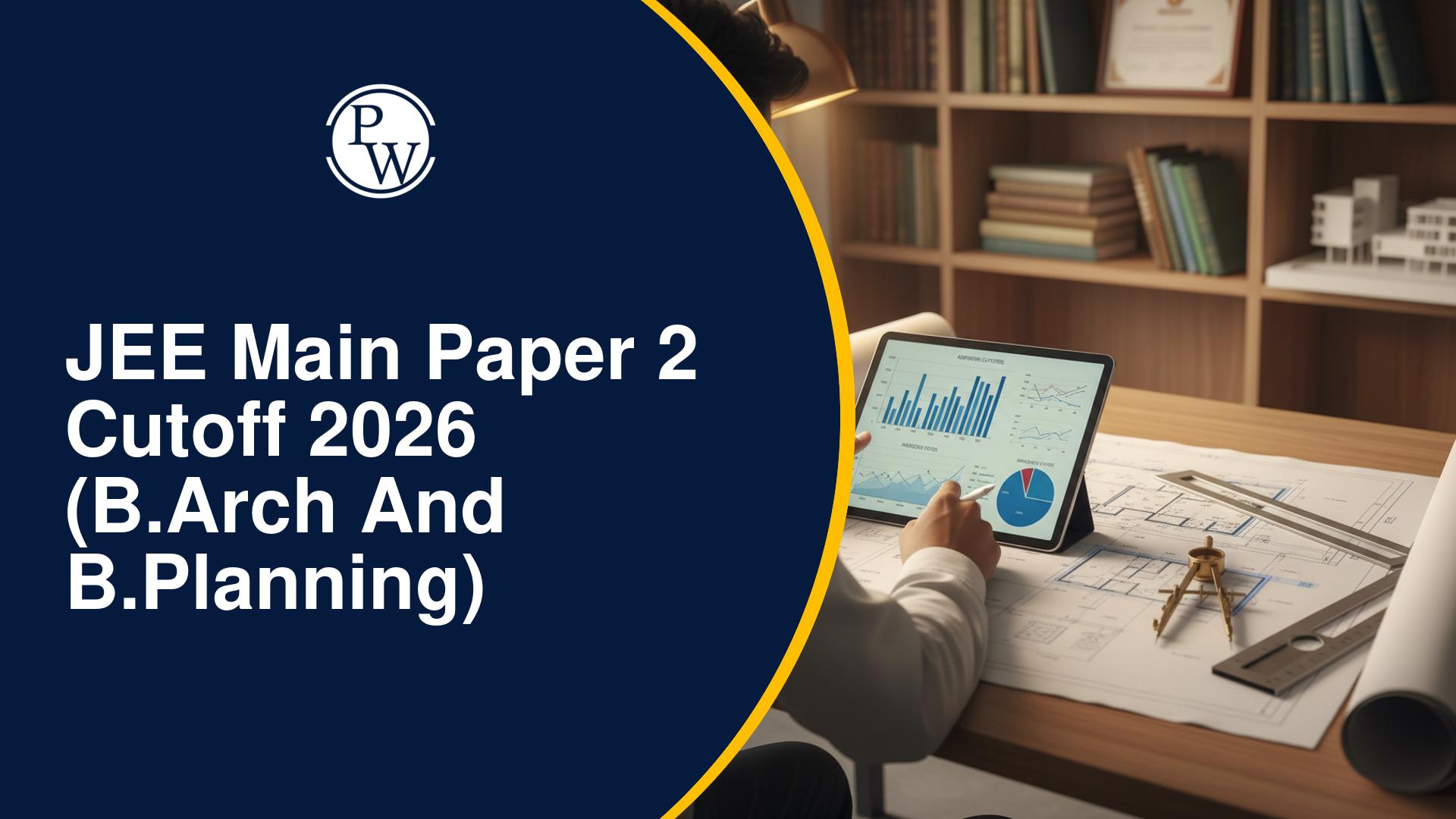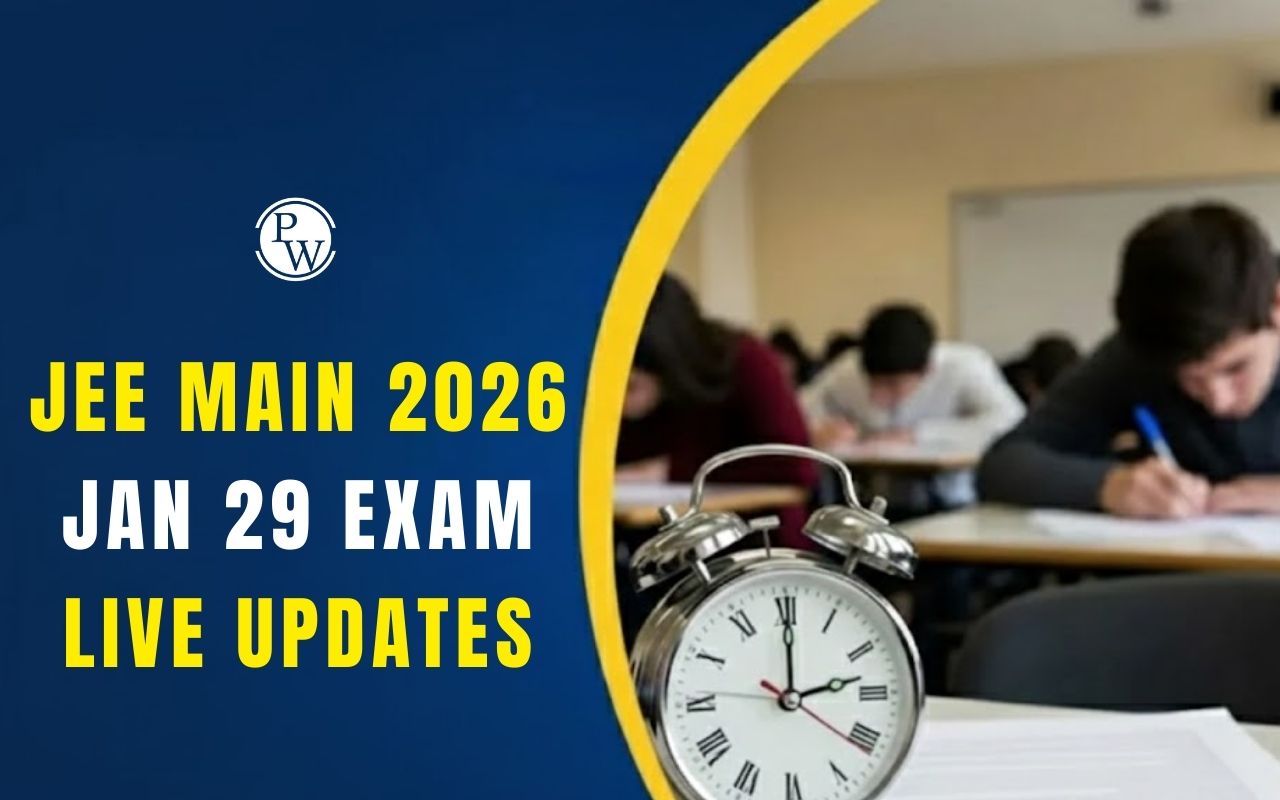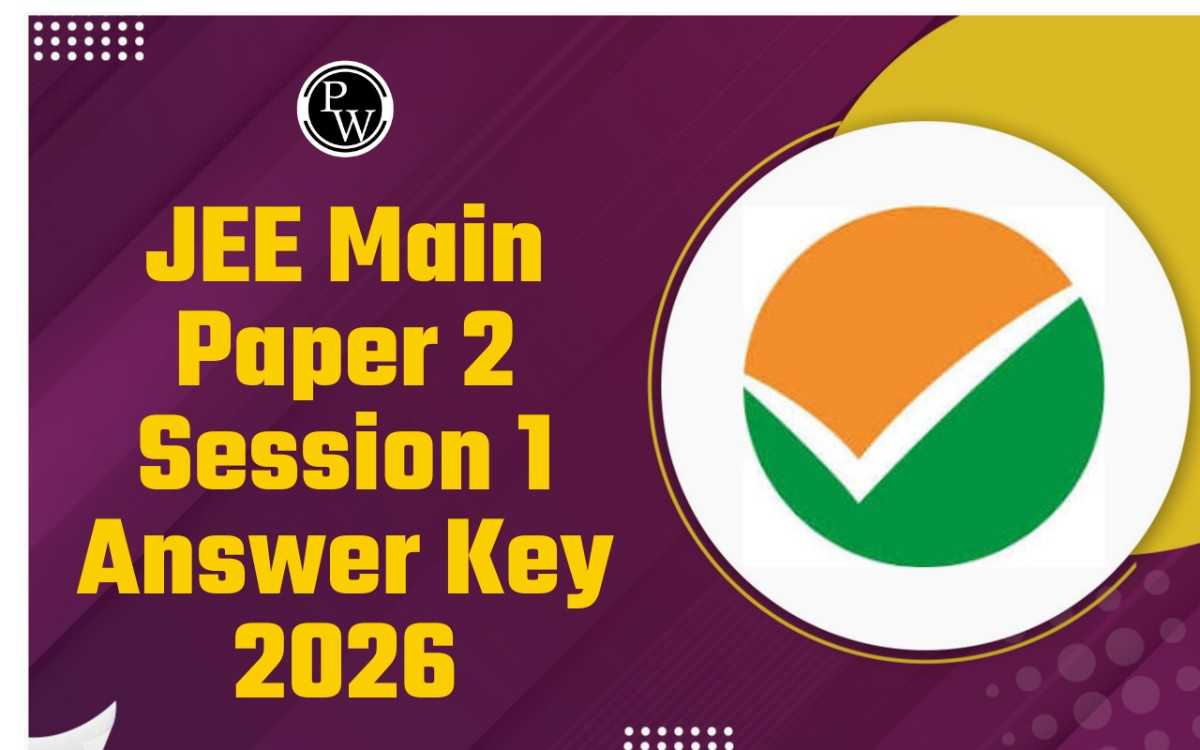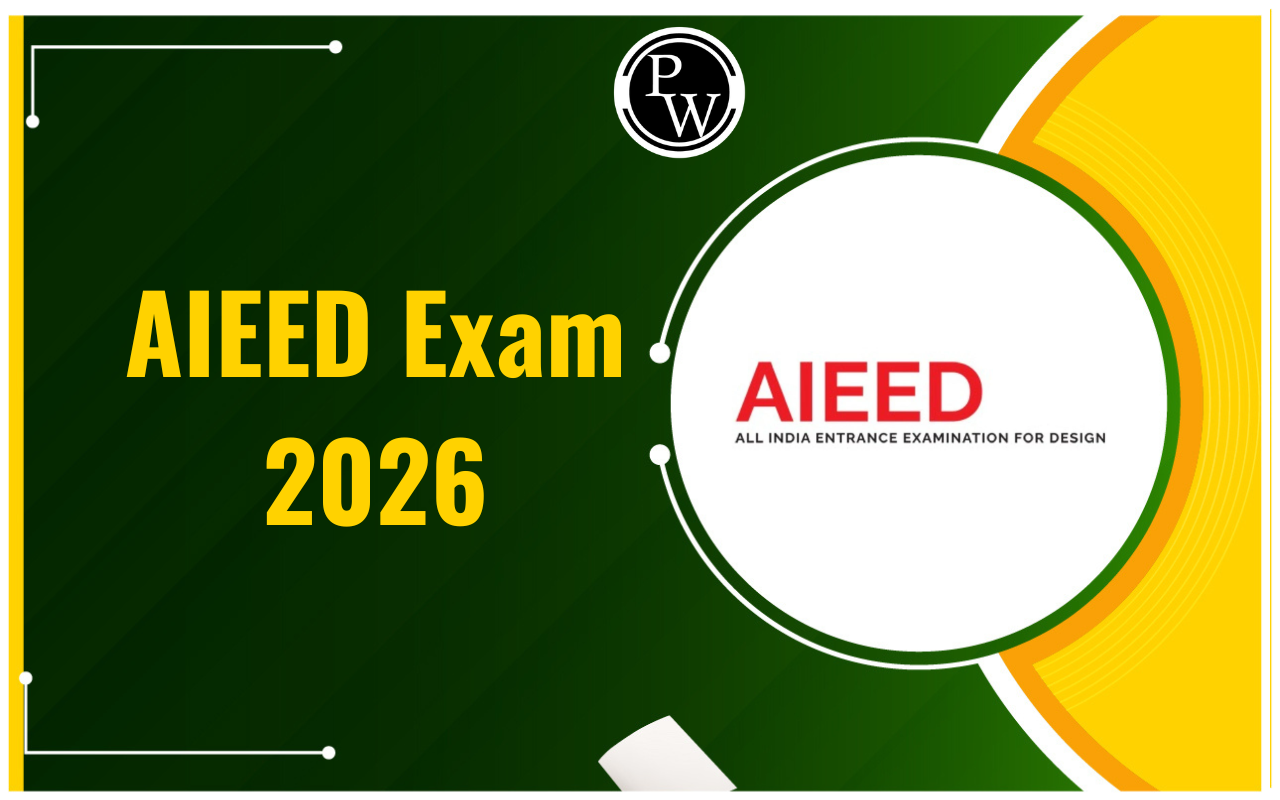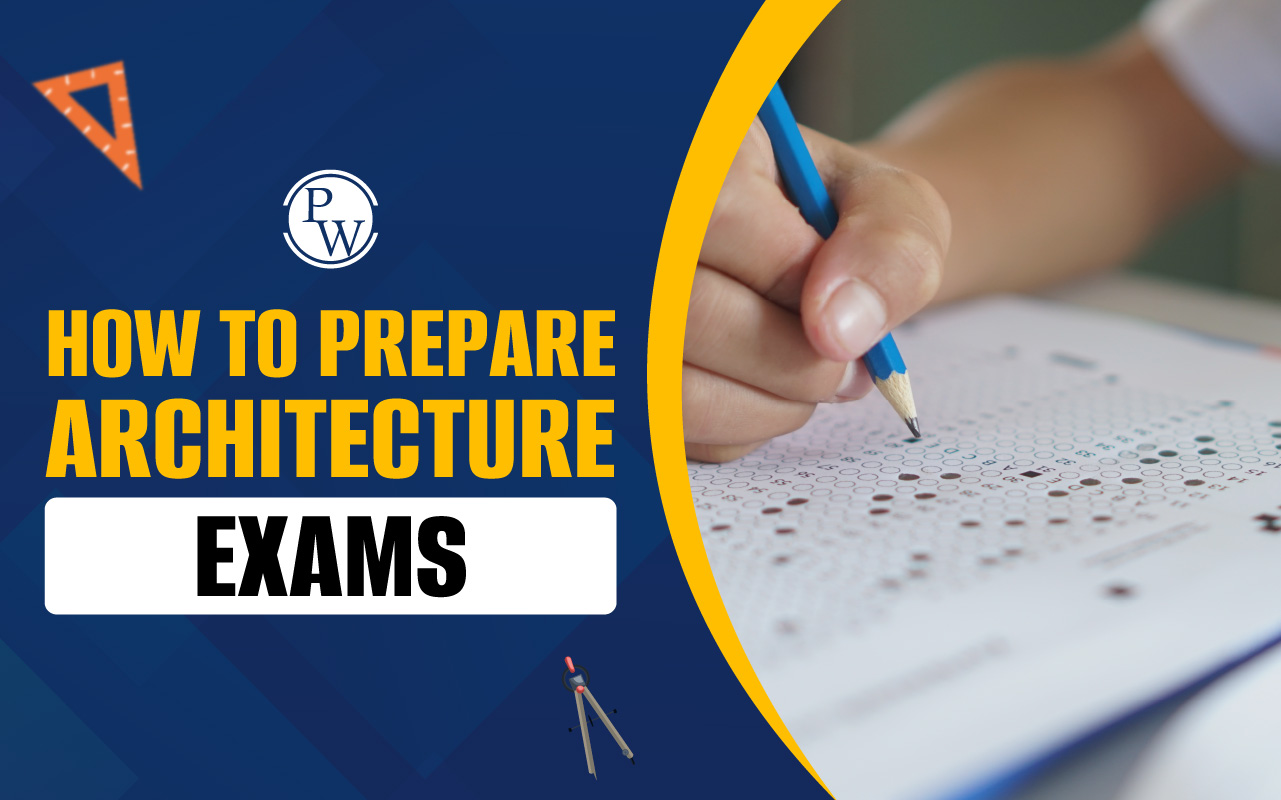
NATA Eligibility Criteria 2025: The Council of Architecture (CoA) administers the National Aptitude Test in Architecture (NATA), a national entrance test, to students seeking to enroll in first-year undergraduate architecture programs (B.Arch) in India. It evaluates a candidate's aptitude for architecture by emphasizing abilities such as critical thinking, logical reasoning, visual perception, and drawings.
Candidates must have earned a 10+3 Diploma in Mathematics or a 10+2 exam with Physics, Chemistry, and Mathematics in order to be qualified to take the NATA (National Aptitude Test in Architecture) test. There is no upper age restriction to participate in NATA.
NATA Eligibility Criteria 2025 Overview
The NATA Eligibility Criteria 2025 is set by the CoA and defines the academic qualifications and conditions candidates must meet to appear for the NATA entrance exam. Meeting these eligibility norms is mandatory for candidates seeking admission to B.Arch programs through NATA. According to the eligibility criteria, there is no age limit, but candidates must secure minimum qualifying marks in the exam to be considered for admission. The following table gives an overview of the NATA eligibility criteria 2025.
NATA Exam 2025
The Council of Architecture will conduct the National Aptitude Test in Architecture (NATA) 2025 from March 7, 2025, until June 2025. The exam will take place on specified Fridays and Saturdays, with two sessions on Saturday (morning and afternoon) and one session on Friday afternoon. On February 3, 2025, NATA 2025 registration opened. Candidates will be able to take one, two, or up to three computer-based exams.
NATA Subject Requirements
Candidates must have passed a 10+3 Diploma in Mathematics or a 10+2 exam with Physics, Chemistry, and Mathematics to be qualified to take the NATA (National Aptitude Test in Architecture) test. There is no upper age limit to participate in NATA.
NATA Eligibility Criteria 2025: Educational Qualification
Candidates appearing for the NATA 2025 must have the following educational background in relevant subjects.
- Candidates must have passed or be appearing in the 10+2 examination with Physics and Mathematics as compulsory subjects, along with one of the following: Chemistry, Biology, Technical Vocational Subject, Computer Science, Information Technology, Informatics Practices, Engineering Graphics, or Business Studies, OR,
- Candidates should have passed or are appearing in a 10+3 Diploma examination with Mathematics as a compulsory subject, OR,
- Candidates can also be in 10+1 with Physics, Chemistry, and Mathematics (PCM) as subjects.
NATA Eligibility Criteria 2025: Age Limit
There is no age limit for candidates to appear for the NATA entrance examination. Aspirants of any age can apply for NATA. However, candidates must still meet the academic and other eligibility requirements set by the Council of Architecture.
NATA Eligibility Criteria 2025: Number of Attempts
Candidates can appear for the exam up to three times within a single academic year. This gives aspirants multiple opportunities to improve their scores and enhance their chances of admission. Among all attempts, only the best score will be considered for the final admission process.
NATA Eligibility Criteria 2025: Minimum Qualifying Marks
As per the NATA eligibility criteria 2025, candidates must score a minimum aggregate of marks in their class 12 or equivalent examinations. Candidates must have passed the 12th-level examination from a recognized board with at least 45% aggregate marks in all subjects.
NATA Eligibility Criteria 2025: State Level Admission
The NATA Eligibility Criteria 2025 for state-level admission require candidates to fulfill both the general eligibility norms set by the Council of Architecture and the specific requirements of the respective state authorities. Admission to B.Arch programs at the state level is subject to meeting state or university eligibility rules, which may include domicile requirements or minimum marks in qualifying exams. Candidates must apply separately to state counselling authorities or universities and participate in their admission processes after obtaining a valid NATA score. The state-level eligibility criteria are as follows for BArch admission.
1. KCET
- Candidate must be a citizen of India.
- Candidates must have passed the 2nd PUC / 12th standard exam with Mathematics as one of the compulsory subjects. He/she should have scored atleast 50% marks in all subjects.
- Candidates belonging to the SC, ST, Category‐I, OBC (2A, 2B, 3A, and 3B) must score at least 45% aggregate marks. Person with a disability of mental retardation or mental illness (including dyslexia) also have to obtain 45% marks.
2. KEAM
- Candidates must be Indian nationals. Persons of Indian Origin (PIO) and Overseas Citizens of India (OCI) are also eligible.
- Candidates must have passed the Higher Secondary Examination, Kerala, or an equivalent exam, with at least 50% aggregate marks, OR,
- Passed a 10+3 Diploma examination with at least 50% marks in aggregate, OR,
- Candidates should have completed the International Baccalaureate Diploma after 10 years of schooling, securing at least 50% marks.
- Mathematics should be a compulsory subject in the qualifying examination.
3. GUJCET
- Candidates must be Indian citizens.
- Candidates should have passed their Class 12 (or equivalent) from a recognized board with at least 45% aggregate marks.
- Candidates should have passed a diploma from a recognized university with 50% aggregate marks.
4. Himachal B.Arch Admission
- Candidates must have passed Class 12 or its equivalent examination with at least 50% aggregate marks (45% for reserved category candidates).
- Candidates with a 3-year diploma (with Mathematics as a compulsory subject) and at least 50% aggregate marks are also eligible.
Validity of NATA Scorecard
The NATA scorecard is valid for two academic years from the date the candidate appears for the exam. This means that a NATA 2025 score can be used for admission in the 2025 academic year and the following year, 2026. After this validity period, candidates have to retake the exam to use a valid score for admission.
NATA Eligibility Criteria 2025 FAQs
Who is eligible to appear for NATA 2025?
Candidates who have passed or are appearing in 10+2 or 10+3 Diploma examinations with Mathematics as a compulsory subject are eligible. Those in 10+1 with Physics, Chemistry, and Mathematics can also apply.
Is there any age limit for NATA 2025?
No, there is no age limit specified to appear for NATA 2025.
How many times can a candidate attempt NATA in 2025?
Candidates can attempt NATA up to three times in a single academic session. The best score among all attempts will be considered for admission.
Is NATA score valid for more than one year?
Can international students or NRI candidates apply for NATA?



